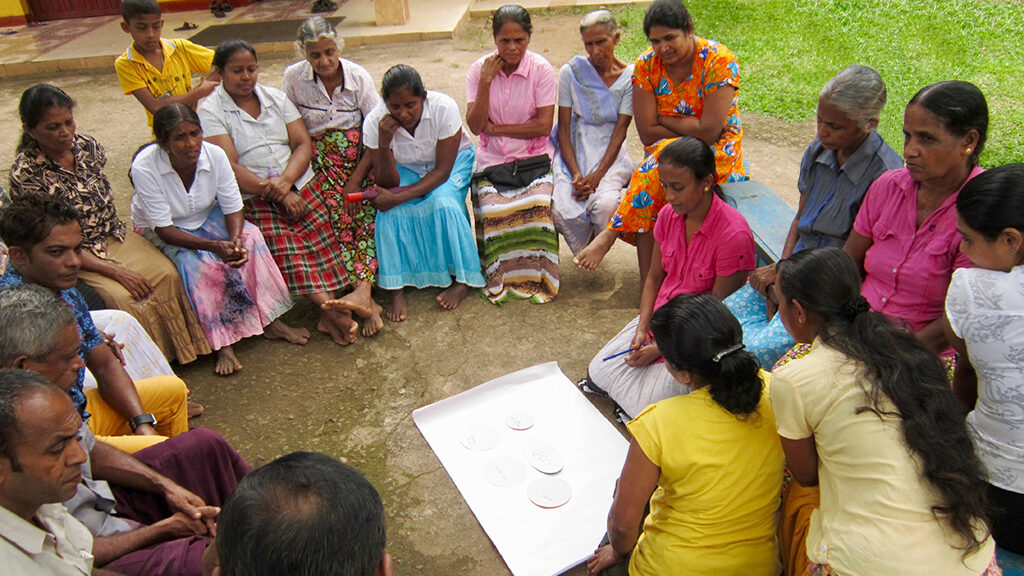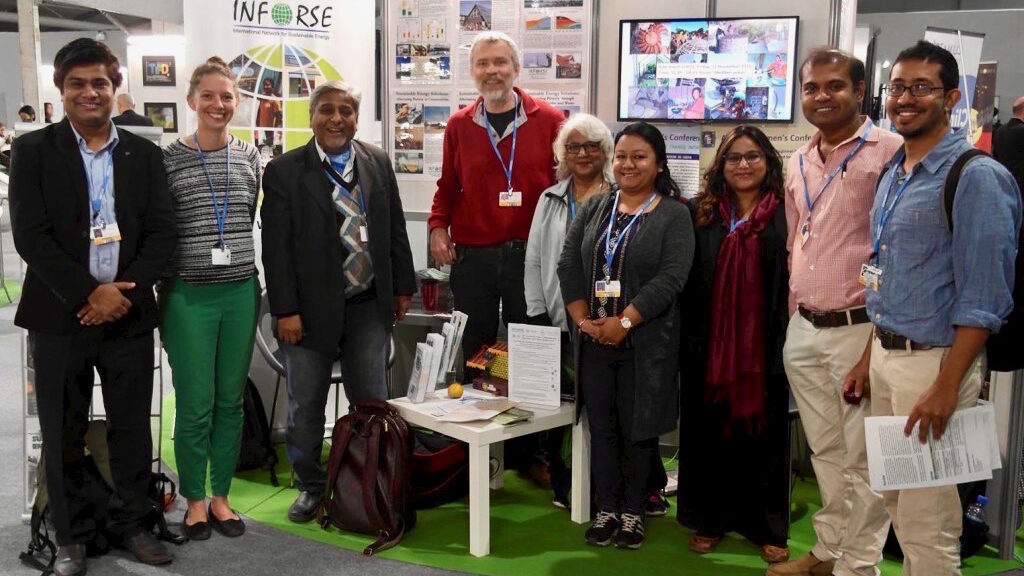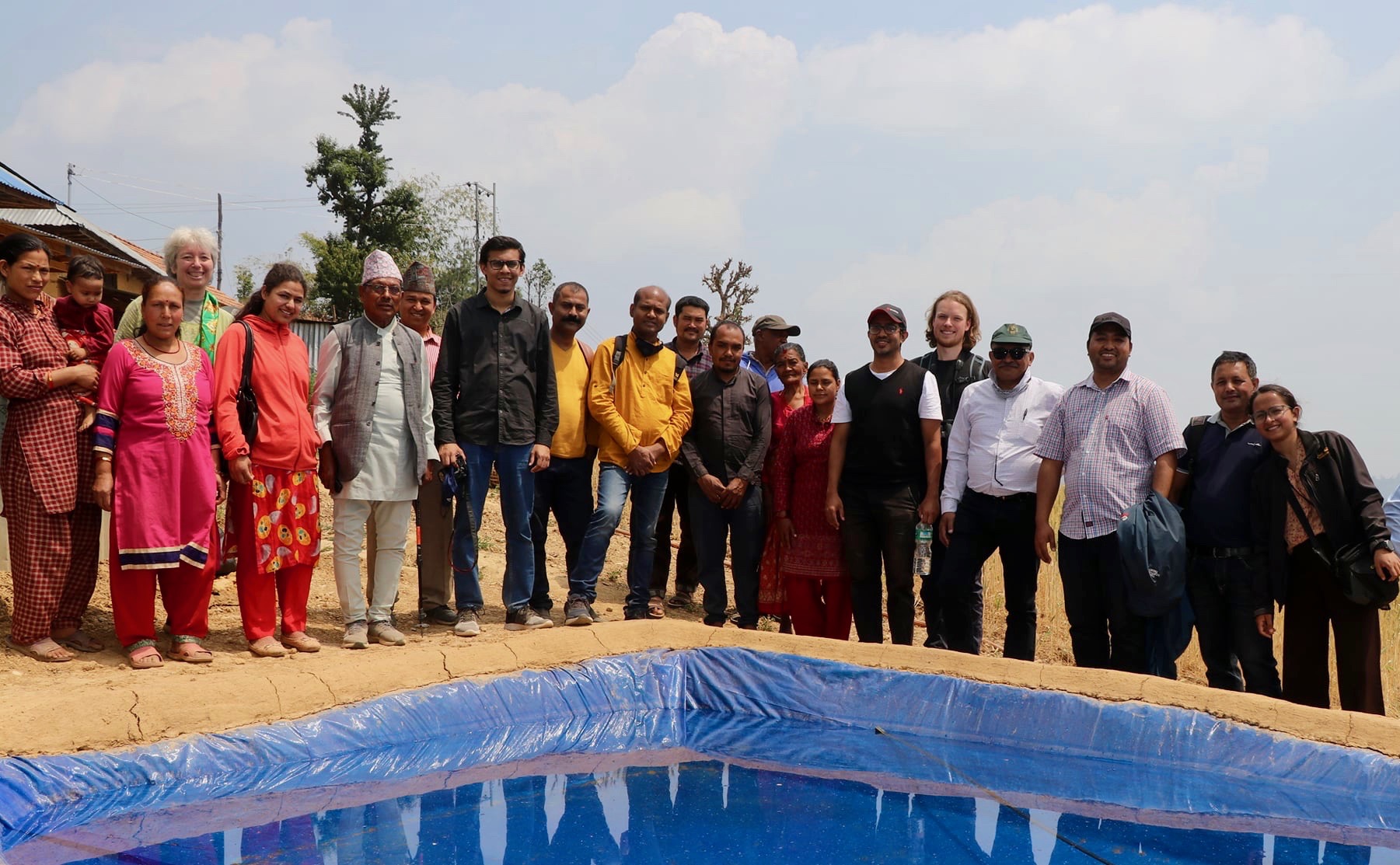Since 2015 we have worked in South Asia to implement and upscale the concept of Eco-Village Development (EVD), together with our partner organizations in the region. The concept is based on contributing to improve climate change adaptation and mitigation, as well as the livelihoods of rural families, and especially women. Besides the local implementation, the partners have also focused on advocacy at the local, national, regional and international levels.
Our partners in the project are INSEDA and Climate Action Network South Asia (CANSA) in India, Grameen Shakti in Bangladesh, IDEA in Sri Lanka and CRT/Nepal in Nepal, as well as our Danish partner International Network for Sustainable Energy (INFORSE). Since 2015 we have led 4 projects together, where the last one ended in 2023. Currently we are crossing our fingers to get a new project confirmed :)

EVD-database
In August 2022 we launched our EVD-database, that contains more than 40 local solutions that have been implemented in villages in Bangladesh, India, Nepal, and Sri Lanka.

Eco-village Development and Advocacy
Together we work to promote the dissemination of the eco-village concept through evidence-based advocacy. From 2015-2017, three to six 'demonstration villages' were created in each partner country. Here, a number of technical, locally developed, low cost solutions in renewable energy, water supply, agriculture and settlement are combined in close cooperation with the local population and with careful consideration to the specific needs of the village.
These villages constituce the evidence for evidence-based advocacy that is also carried out in this project by our partner organizations. These organizations have many years of experience with implementing these solutions.
Our partners in Nepal have produced the following small film that gives a good insight into the project and what eco-village development is all about.
Upscaling the advocacy activity
In the second part of the project (2017-2018), the focus was on scaling up the eco-village concept and proposing it as a solution in national climate action plans. In addition to maintaining and expanding the activities in the villages, the partner organizations also participated in the international climate summits, where they presented publications and policy recommendations as well as networked and advocated at both regional and national levels.

Strenghtening the EVD concept
The main objective of the intervention is to achieve improved living standards for vulnerable rural areas in South Asia , through the integration of local sustainable solutions, that contribute to countering the effects of climate change, to adaptation, and to building local resilience.

Partnerne i Next Generation EVD-projekt på besøg hos landsbyboere, som har fået støtte til økolandsbytiltag.
Teknologier til økolandsbyudvikling
Et eksempel på en intervention i forbindelse med EVD’erne i Nepal har været implementeringen af en hydraulisk ram pumpe, som nu forsyner landsbyen med ferskt drikkevand og vand til landbruget. Se videoen og høre fra Gopatatpa om hvad pumpen bruges til dagligt:
